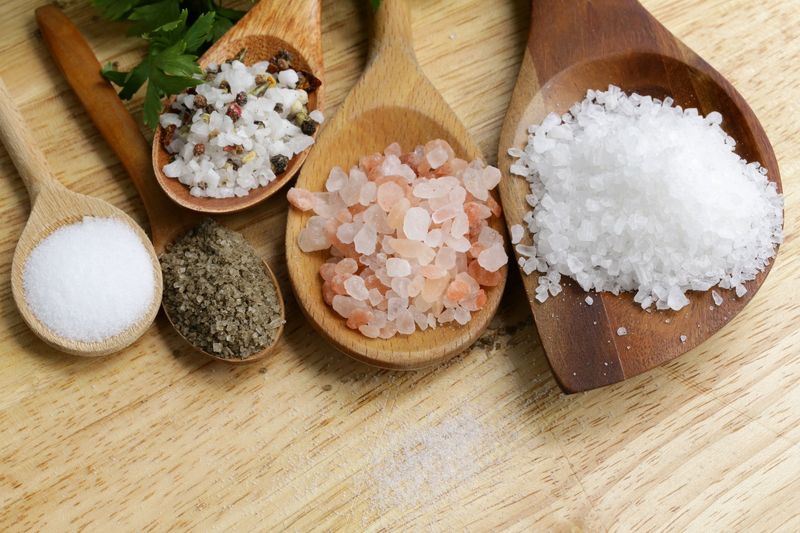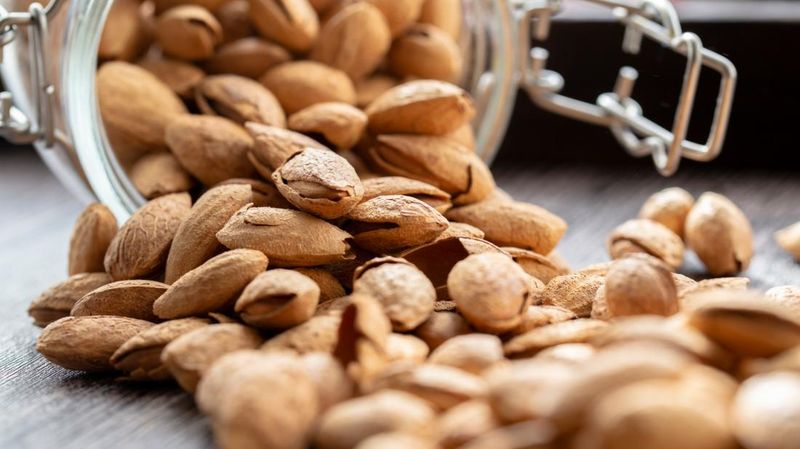You might be sipping your morning coffee, tossing spinach into your smoothie, or munching on a salty snack—all in the name of health. But what if some of those well-meaning choices are quietly chipping away at your bones?
Bone health isn’t just about what you add to your diet—it’s also about what you might need to limit. Our skeletons do a lot more than hold us upright.
They’re our body’s framework, protect our organs, and serve as reservoirs for vital minerals like calcium and phosphorus. But as we age—or even before we realize it—our bones can become more fragile, increasing the risk of fractures and osteoporosis.
The good news? Food is one of your most powerful tools for either protecting or weakening those bones.
In this article, we’ll break down six everyday foods that may be doing your bones more harm than good, and introduce you to seven powerhouse foods that help build bone strength with every bite.
It’s not about demonizing your favorites—it’s about striking a smart balance. Let’s dive into the surprising dietary habits that might be messing with your bone game, and what you can eat instead to keep your frame strong and thriving.
1. Spinach
While known as a powerhouse of nutrients, spinach also contains oxalates that can inhibit calcium absorption. This might come as a surprise, given its reputation as a healthy green.
The oxalic acid in spinach binds to calcium, making it unavailable to your body, which could potentially weaken your bones if consumed in excess. It’s not about cutting spinach out entirely; rather, it’s about balancing its intake with other calcium-rich foods.
Interestingly, spinach still offers iron and vitamin K, both crucial for overall health. Pairing spinach with vitamin C-rich foods can enhance iron absorption, creating a more balanced nutritional profile.
Diversify your greens by including kale or broccoli, which don’t have the same oxalate concerns. Enjoy spinach sensibly, and your bones will thank you.
2. Coffee
Ah, the aroma of a freshly brewed coffee is a delight to many. However, excessive coffee consumption can lead to decreased bone density.
Too much caffeine can interfere with your body’s ability to absorb calcium, vital for bone strength. For the avid coffee lover, this doesn’t mean you need to quit.
Moderation is the magic word here. Limiting your intake to less than four cups a day can keep the negative effects at bay while still letting you enjoy your morning ritual. Consider switching to decaf or incorporating milk alternatives fortified with calcium to balance the scales.
Embrace your coffee moments, but keep an eye on the quantity to savor strong bones and a happy heart.
3. Alcohol
A glass of wine during dinner is commonplace, but excessive alcohol can harm your bones. Alcohol interferes with the balance of calcium, an essential ingredient for healthy bones. It also affects the hormones that are part of bone health, leading to a risk of osteoporosis with prolonged overconsumption.
Enjoying alcohol in moderation can mitigate these risks. A glass with friends can be a delightful experience, just ensure it doesn’t become a nightly habit. Opt for water between drinks to keep hydrated, and consider setting a drink limit to maintain bone strength.
4. Salt
Salt, or rather its overuse, is a sneaky bone-wrecker. High salt intake can lead to calcium loss through urine, weakening bones over time. Many processed foods are laden with salt, making it easy to consume more than the recommended amount without realizing.
A simple yet effective strategy is to cook at home more often, allowing better control over salt usage. Opt for herbs and spices to enhance flavor without compromising bone strength. By reducing salt intake, not only do you support your bones, but your heart also benefits.
This little change can have a profound impact on your overall health, making your bones as strong as they should be.
5. Red Meat
Red meat, though a popular protein choice, contains high levels of sulfur-containing amino acids that can increase calcium excretion. This can lead to weakened bones if consumed excessively. Balancing red meat with plant-based proteins is a valuable approach to protecting your skeletal system.
One doesn’t need to eliminate it entirely, but moderation is vital. Including more fish, beans, and legumes can offer diverse nutrients and help maintain calcium levels. Consider meatless Mondays or similar initiatives to reduce intake while still enjoying occasional steaks.
Your bones will appreciate the thoughtful balance, staying strong and supportive throughout life.
6. Trans Fats
Trans fats, often found in processed and fried foods, can affect bone health negatively. These unhealthy fats can inhibit calcium absorption, making it crucial to limit their intake. The convenience of grabbing a quick snack can sometimes overshadow the need for mindful eating.
Making smarter choices by reading labels and opting for trans-fat-free products can prevent unwanted bone issues. Replace these snacks with nuts or fruits for a healthier alternative, supporting both bones and overall wellness.
1. Milk
When it comes to strengthening bones, milk is often at the forefront. Packed with calcium and vitamin D, it’s a fundamental element in building strong bones. Drinking milk regularly can significantly contribute to increased bone density, especially in growing children and teenagers.
Just a glass a day can be a step towards better bone health. If lactose is an issue, lactose-free options or fortified plant-based milks can be great alternatives.
Pairing milk with a healthy diet and regular exercise ensures your bones get the best possible support. The creamy taste of milk can be both a treat and a tool for building a robust skeletal structure.
2. Yogurt
Yogurt, a versatile and delicious dairy option, is packed with calcium and probiotics. These nutrients work in unison to bolster bone health, aiding in both calcium absorption and digestion. A daily serving of yogurt can be a delightful addition to your diet, supporting bone density and strength.
Flavored yogurts can be enjoyable, but opting for Greek or natural yogurt with added fruits can maximize health benefits. This creamy delight doesn’t just stop at bones; it also supports gut health, creating a balanced wellness environment.
3. Cheese
Cheese, a delightful indulgence for many, is an excellent source of calcium and vitamin K. These nutrients play a pivotal role in preserving bone health and preventing fractures. Enjoying a slice of cheese can be a tasty way to contribute to your daily calcium intake.
The diversity of cheeses allows for creativity in meals, from salads to sandwiches. However, moderation is crucial, as cheese can also be high in saturated fats. Balancing it with vegetables and whole grains can enhance its benefits while minimizing potential drawbacks.
4. Salmon
Salmon is a powerhouse of omega-3 fatty acids and vitamin D, crucial for bone health. These nutrients support calcium absorption, reinforcing the structure and resilience of bones. Regular consumption of salmon can lead to stronger and more flexible bones, aiding in overall mobility and health.
Grilled, baked, or poached, salmon is versatile enough to fit any meal plan. Its rich flavor and nutritional profile make it a favorite for those looking to enhance their diet.
Pairing salmon with green vegetables can create a balanced meal that supports both bone and heart health.
5. Almonds
Almonds, small yet mighty, are packed with calcium, magnesium, and protein. These nutrients collectively contribute to bone strength and density.
Snacking on almonds provides more than just a quick energy boost; it supports your skeletal health with every bite.
Adding almonds to salads, oatmeal, or even as almond butter can diversify your diet while bolstering bone health. Their crunchy texture and nutty flavor make them a delightful addition to various dishes.
6. Broccoli
Broccoli offers a wealth of nutrients, including calcium, vitamin K, and magnesium, all vital for bone health. This green vegetable is not only nutritious but also versatile, fitting into a variety of dishes from stir-fries to soups.
Including broccoli in your diet ensures you’re supporting your bones with essential nutrients. Its crisp texture and slightly bitter taste can be enhanced with garlic or lemon for a flavorful experience.
Broccoli’s contribution to bone health is significant, making it a staple for anyone focused on maintaining strong bones.
7. Tofu
Tofu, a staple in many plant-based diets, is rich in calcium and protein. These elements are fundamental in building and maintaining strong bones.
Tofu’s versatility allows it to be incorporated into various dishes, from stir-fries to smoothies, making it an ideal choice for those seeking bone health benefits.
Opt for calcium-set tofu to maximize its benefits. Its neutral flavor absorbs spices and marinades well, creating endless culinary possibilities. Including tofu in your meals not only supports bone health but also offers a lean source of protein, beneficial for overall wellness.













Leave a comment